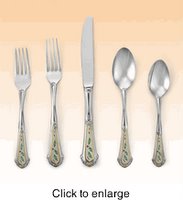Wishing you a safe and happy New Year
Our friends Tom and Pat are coming over from Indianapolis. The guys have been friends since their teen years, and Tom was the best man in our wedding. Our children are about the same age, and some day I hope to see their son Mike's name on the title page of a novel. Their daughter Rachel teaches in an urban school in Indianapolis.We'll either go to a movie or a jazz concert--it's their call, then either to Old Bag of Nails or Rusty Bucket--our call--for something to eat, and then downtown to look at the lights, which so far, we've managed to miss. I think there is a Ferris wheel at Skate on State something set up to draw people downtown during the holidays. Hope we aren't too late.
I hope you have a wonderful, healthy, prosperous 2006.
May your investments do well,
your medical visits few,
May your friends be many
and love always surround you.
At least, that's what matters when you're my age!

























